Being a European couple and lovers of the Spanish vibe and food, we wished to extend our knowledge of the northern basque culture. We wanted to step away from the general and common tips to travel the Spanish and French Basque country area and we ended up finding a cute little spot in the south of France called Bayonne.
Most people would instead go to more renowned places like Biarritz or Toulouse, but we are always avid to get and show more specific travel tips, so we were wondering if Bayonne, France was worth the visit.
After spending a couple of days and squeezing the culture around the region, we are now in a good spot to answer the question: is Bayonne France worth visiting?
Yes. San Sebastian ¡n is famous for its alluring old town, charming architecture, vibrant culture and history, delicious cuisine, lively festivals, local specialties like Bayonne Ham, chocolate, beautiful river views, and outdoor activities. Bayonne is a cute little town located in the South of France bordering the Spanish Basque country.This beautiful town is separated into two main areas, Petit Bayonne and Grand Bayonne by the Nive River. Bayonne's historical origins go back to the times when it belonged to the southern province of France called the Duchy of Gascony.
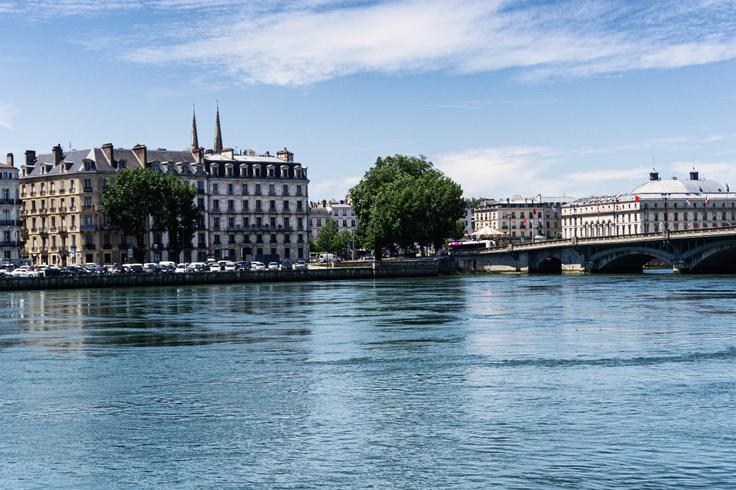
Whilst the French influence is patent in the city of Bayonne, the Basque tradition and culture mix perfectly, being evident in their food, desserts, the vivid red beams of the Basque traditional houses and locals' personalities.
In the early days, the city of Bayonne used to be famous for its whaling and cod oil industries and the exchange of spices and fresh produce from the Basque people.
Back in the day, Bayonne used to be fortified by many defence structures that even today remain intact, such as Château-Vieux, Porte d’Espagne, Château-Neuf, and the citadel, which, unfortunately, are not open for public visiting to keep them preserved.
What is the City of Bayonne in France famous for?
The city of Bayonne is known and famous for the cured hams, their specialty in making exquisite chocolate and their famous high-quality salt.
When it comes to the richness of their industry, Bayonne's activity is very much around the exportation of fresh produce, and agricultural products like corn and sulphur production.
The city of Bayonne is also famous for its metallurgic and telecommunication factories and also, and the tourism field is a growing area of growth for the city.
Bayonne is famous for its Spanish Basque heritage and culture, its old town and its historic buildings that have made the city an attraction to frequent travellers.
Lastly, Bayonne is famous for its gothic cathedral which is a world heritage from the 90s, as part of Santiago de Compostela's pilgrimage through the French routes.
The old town restoration project, the ramparts and the medieval looks of the city, made Bayonne hold the title of “Town of Art & History in 2012 in honour of the French Basque Heritage.
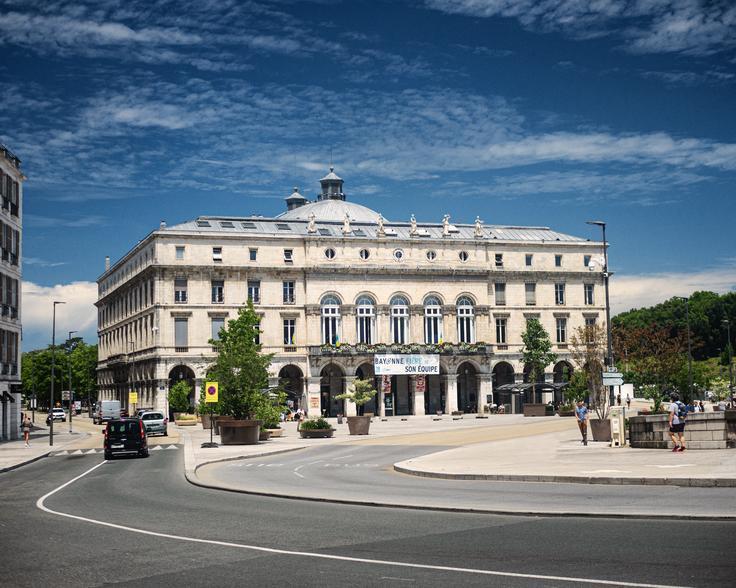
Why Bayonne is worth visiting. Top reasons
There is an over-tourism in major cities in France and Spain like Paris, Madrid or Barcelona, however, we love emphasising and giving visibility to the less visited destinations, such as Bayonne in the French Basque Country.
It is not only rich in its historical background but also, beautiful because of its people and food, making Bayonne a unique place worth visiting.
It is worth travelling to Bayonne due to its wide range of outdoor activities which include fun celebrations during the Fêtes de Bayonne, which happens during the summertime. Due to the fact that the city of Bayonne is divided into two areas Petit Bayonne and Grand Bayonne.
Grand Bayonne is likely to be the main reason why is worth travelling to Bayonne, and that is because the key landmarks of the city are found there as well as the most delicious patisseries, cafes and shops.

Grand Bayonne is a fantastic place to start your visit to this city and we recommend having a walk around the historical area including the Château Vieux and Bayonne Cathedral.
The two emblematic places of Bayonne are actually patrimony of the World's Heritage, as they represent the tradition and the fortifications where the rulers used to live.
Visiting the Cathedral of Bayonne is worth the trip just to see it, as the gothic style is pure art having two magnificent spires at the top that reach more than 80 metres and are a hallmark of the city.
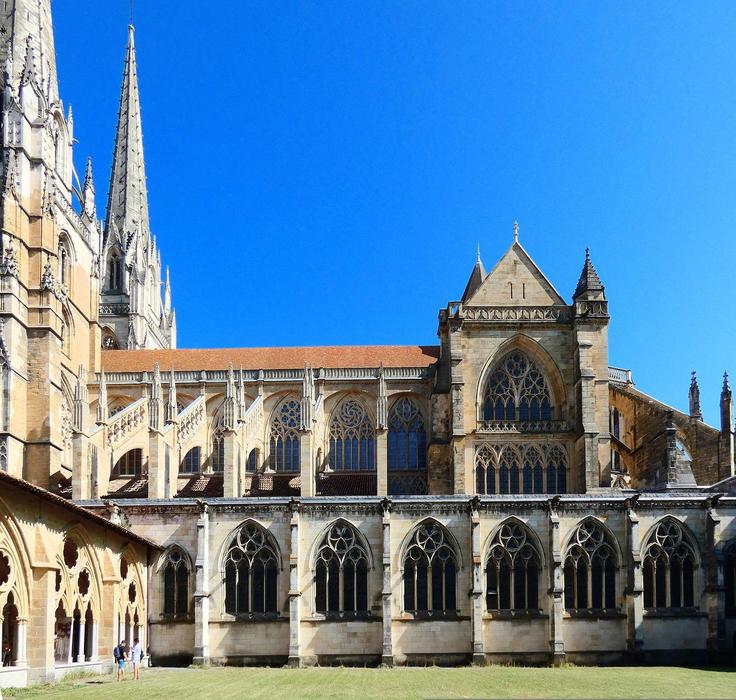
This gothic style can also be seen everywhere in the old town and also, and the cathedral counts with several courtyards that make the visit a pleasant experience. As mentioned above, in the Grand Bayonne you can find the best shopping to acquire French Basque specialties.
Treat yourself and take a nice stroll through the Rue d'Espagne, which is built for pedestrians to walk and starts right after the doomed roof of the cathedral. There, you can find artisan chocolatiers and Basque gourmet stores.
The reason why you can find the most exquisite chocolate in Bayonne is that the first cocoa manufacturers were based in the Basque country that run to France, escaping the Spanish inquisition.
Therefore, it is worth finding a popular chocolatier where you can get all the information and a nice chocolate production and tasting session! If you get to go to Bayonne in the early days of May, you will enjoy and indulge in the Chocolate festival, called Journées du Chocolate
In addition, if you take a look at the Les Halles market, you can get superb gifts and goodies. It is a perfect place to have a good grasp of the local produce of Bayonne, such as meat, fish, bakeries and the tasty gâteau Basque.
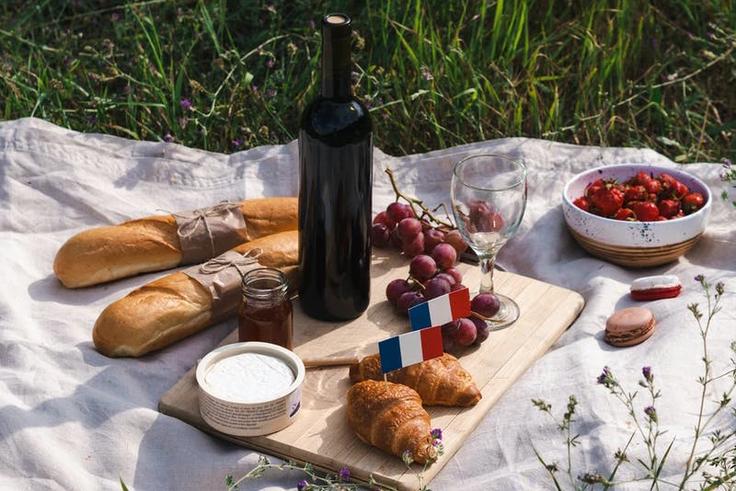
Lastly, when visiting the grand Bayonne, don't forget to go down to the Botanical Gardens, to the Quartier Saint-Esprit, where you can find the Jewish community, and to the impressive Town Hall of Bayonne to have a nice coffee in the plaza with incredible views.
Petit Bayonne Petit Bayonne (which is found across the Nive river) is another main reason why visiting Bayonne is worth the trip. It is known as the easy-going area of Bayonne.
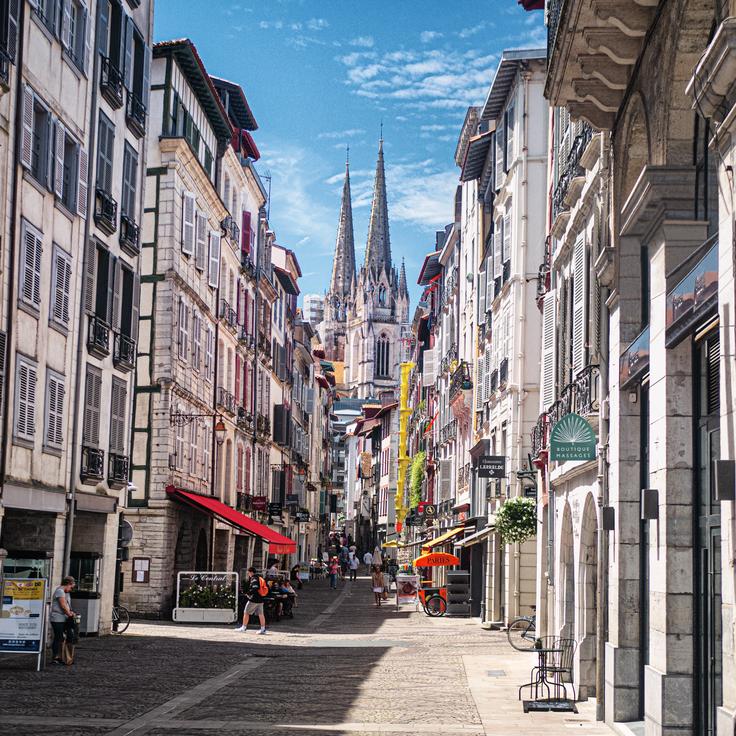
Not only it is super pleasant to walk and wander around this area of the town, but also, you can find the Basque Museum to learn more about French-Spanish history.
At the top of the Petit Bayonne, you will be able to find the Château-Neuf which nowadays belongs to the university.
This part of town is way different from the rest of Bayonne as it was originally part of the Gascony, settled firstly by the Jewish community, who escaped from the Spanish Inquisition.
One of the most emblematic places to indulge in some authentic Bayonet chocolate is L'Atelier du Chocolat, where you can enjoy a workshop and get a nice taste of the local produce.
Lastly, in Petit Bayonne, you will find the nightlife area and the traditional Basque houses, with their traditional red beams and lively bar atmosphere right next to the river. How many days do you need in Bayonne, France? Well, it all depends on how much time available you have.
If you are travelling around the north of Spain and the French Basque country, and you have a couple of days available, we would recommend spending two to three days to fully grasp the culture and the atmosphere.
In two to three days you will definitely be able to spend a full day around the Grand Bayonne, visiting the cathedral in the old town as well as having a nice lunch and dinner in the finest restaurants.
For the two days remaining, we would advise spending them in Petit Bayonne, enjoying the artisan chocolates and Basque exquisite products.
If you had no rush and you were living the nomadic life, as we do, then, I would suggest staying for about a week to ten days, as you can get really cheap Airbnbs and hostels and everything in Bayonne can be done by foot.
Finally, if you are into surfing and swimming in the ocean, head to the coast and visit the neighbour towns, Anglet and Biarritz where you can enjoy incredible waves and a more French-oriented beach town.
Is Bayonne, France nice?
Oftentimes, when being requested advice to travel around France, I get asked if Bayonne is nice to visit. My answer is clear, yes. It is a nice small city to visit around the French Basque country.
Bayonne is a city that counts all the perks that a bigger city might have but without the noise, stress and busy streets. If you run away from crowds, head off to Bayonne, as many travellers do miss out, thinking that is not worthwhile.
Bayonne is surrounded by a nice bohemian vibe, where it is really pleasant to walk around the river and where you can really see the Basque culture.
The architecture is not particularly mind-blowing but it is traditional and reflects the Spanish Basque culture, featuring the vivid red beams in its buildings and colourful wooden windows.
Enjoying the best bars and restaurants on both sides of the river is a must-stop to enjoy the decadent food and the views. Bayonne is one of the nicest cities in the French Basque country due to the way the city is laid out.
The main feature is that Bayonne is divided by two rivers that meet in the heart of the city, constituting the emblematic city centre where you can find two quarters, the Grand Bayonne and Petit Bayonne as we have described a bit deeper above.
No matter which quarter you start with, being around the riverfront with the lovely buildings and the always cloudy sky is really something.
Not only that but also, the bridge that crosses the Nive river is home to the local markets, usually happening at the weekends, where you can try a wide variety of local delicacies.
Note that, if you are lucky enough to travel to Bayonne during the Easter time, you will be blessed with a four-day food festival, with the best goodies, music, food competitions and the best vibe!
Lastly, Bayonne is a very convenient destination to get to if you choose to go by public transport instead of renting a car.
There are direct connections to bigger cities like Toulouse and Bordeaux as well as being really easy to get to San Sebastian for a nice Spanish Basque session.
There you go! Now you know all the tips on how to travel to Bayonne and for how long, whether the city is nice and worthwhile visiting! Give it a go and enjoy the perks of such a delightful part of the French Basque Country.

